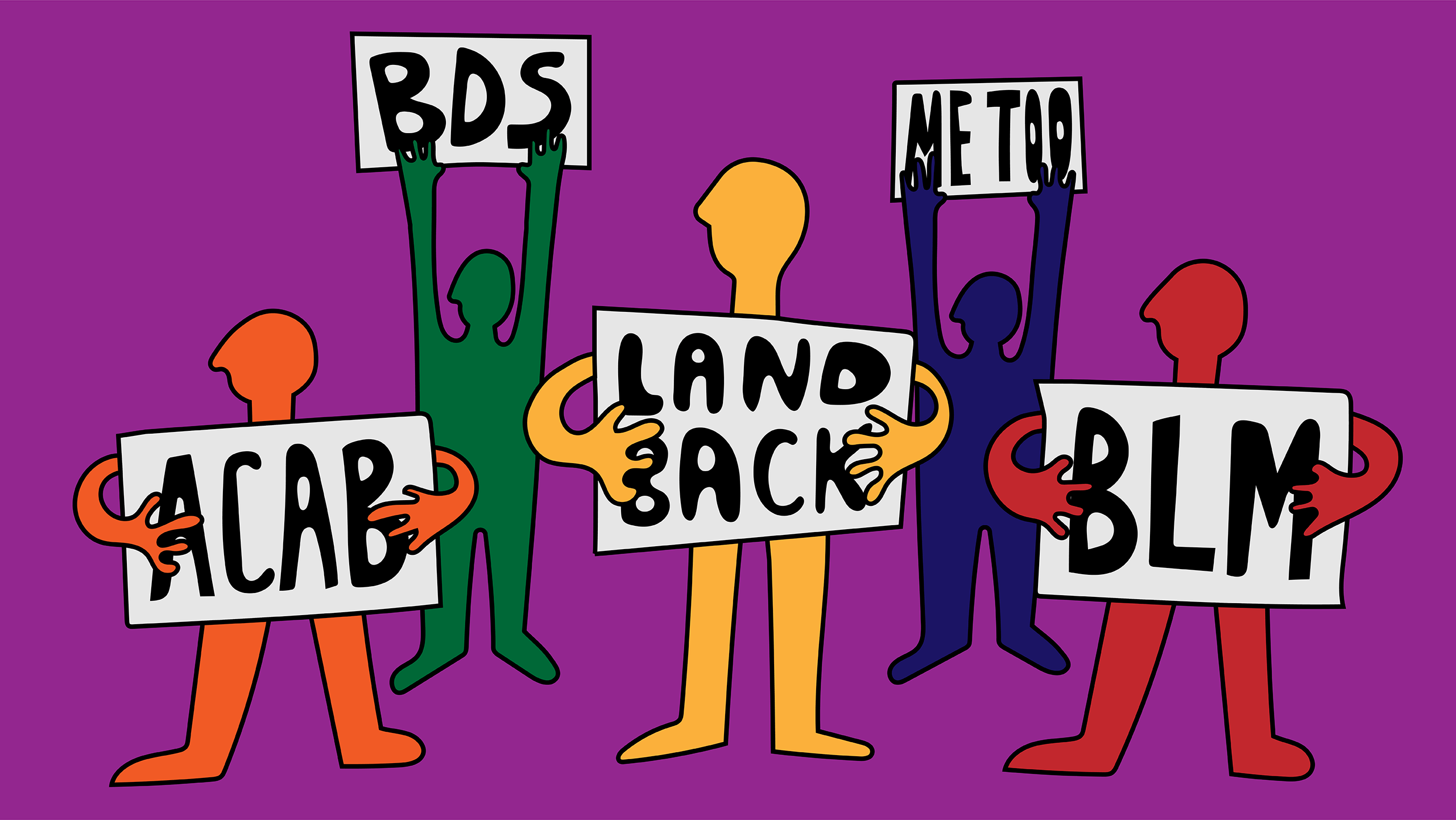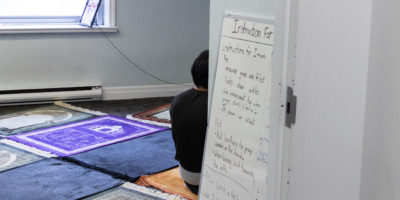By Rhea Singh
Justice For Soli
“I still remember that night in vivid detail,” said Yusuf Faqiri. “As I’m processing all of this, I see my mom and dad in pain and my sibling in pain.”
Faqiri is the oldest of five siblings, one of whom was Soleiman Faqiri, who on Dec. 15, 2016 died following an altercation with prison guards at Central East Correctional Centre (CECC) in Lindsay, Ont. Soleiman was diagnosed with schizophrenia after a car accident less than a year into his environmental engineering studies at the University of Waterloo. After the accident, Soleiman had hopes of becoming an imam.
“My mom stops me…and says, ‘Yusuf, I don’t have the tongue, I need you to find out what happened to my son,’” said Faqiri. “After that I decided to start the Justice For Soli movement.”
Justice For Soli is a movement that not only seeks justice for Faqiri’s brother Soleiman but also questions the treatment of people suffering from mental illness in correctional facilities and at the hands of the police.
Faqiri discussed how the movement grew larger than any of them expected. Now, they have the help of a research team and social media team to help with outreach. More than 200 Canadians have signed open letters demanding justice in Soleiman’s case.
“The movement is a result of the [tragic loss] of my late brother, but the movement stands here today to be the voice for individuals that have died within the justice system,” said Faqiri.
To Faqiri, Soleiman’s story is a catalyst for Canadians to ask major questions about mental health, its criminalization and society’s perception of it.
“Mental illness is a Canadian issue. Mental illness cuts through multiple cleavages; whether it’s socioeconomic, ethnic; it cuts.”
Black Lives Matter – Toronto/Canada
Black Lives Matter (BLM) Toronto is a subsection of BLM that, like other BLM groups across the world, calls for the national defunding of the police and investment in Black communities. Their work involves providing resources to improve the safety of Black community members, working to decolonize Turtle Island and Nunavut Nunangat and end brutality against Black communities.
According to BLM Toronto, there is a need for emergency services that can respond to community members in distress without the dangers of police forces that have been seen for decades. BLM Toronto has outlined multiple demands on the action that needs to be taken in Canada.
“We can and should invest in shelters for people who are experiencing gender-based violence, so that the 300 women who are turned away from shelters each night in Canada have a place to go,” states the BLM Canada website.
“We can and should create an emergency service for survivors and victims of sexual assault that will actually support them, instead of relying on the police forces in this country who have been routinely accused of sexual misconduct.”
In the past year, BLM Toronto has co-organized and planned several rallies and events that call for the defunding of police, such as the First Annual Walk for Justice after the death of Regis Korchinski-Paquet and the Juneteenth sit-in at Toronto Police Headquarters. At Ryerson, BLM protestors tagged the Egerton Ryerson statue “in an art-based action that called for defunding the police.”
Recently, BLM Toronto concluded their four-part webinar called Black August Book Club that covered Until We Are Free: A Reflection on Black Lives Matter in Canada, hosted by filmmaker Michèle Pearson Clarke, who was recently appointed to serve a three-year term as the second Photo Laureate for the City of Toronto.
Climate Justice Toronto
Climate Justice Toronto (CJTO) is a collective led by members seeking to address the climate crisis and other major issues that face marginalized communities in the Greater Toronto Area. What started off as a small group of individuals that met in March 2019 has grown into an Instagram account with almost 20,000 followers.
CJTO was formed when its founding members attended a leadership conference called Power Shift, a series of gatherings organized by youth and focuses on educating others on topics such as fracking, pipeline politics and Indigenous sovereignty.
This year, the group has focused mainly on solidarity movements with other groups in the city, including pushing for the defunding of Toronto Police Service (TPS) and advocating for the protection of Wet’suwet’en territory. Most recently, CJTO organized a Black and Indigenous mutual aid fund for Black and Indigenous organizations working for “the same revolution.”
When discussing the Wet’suwet’en blockades in early 2020, Dani Michie, a member of CJTO said it was interesting and humbling to see the connections created between organizations and Indigenous leaders.
“I think just the scale of it, coordinating actions with people all over the country, it was so cool and powerful to see us all focused on one task. It gave me this really clear image of…how much power we have.”
Michie also said the nature of CJTO is that they are always looking to connect with other groups and collaborate with like-minded people.
“The power that the police have and how they yield their power is not actually good for anyone”
“What makes CJTO special is the way that we’ve analyzed climate change and…[it] contesting capitalism, colonialism and white supremacy,” said Michie. “It gives you the clear image of who in the city is doing that work, and even if they are not doing it through a climate lens, they are ultimately fighting down the climate crisis.”
For those wanting to learn more about what CJTO does and the issues they advocate for, Michie encourages students to join CJTO’s Slack channel and engage with educational content on social media platforms.
“A lot of people in Toronto are making the connection that police violence affects a lot of marginalized communities, the power that the police have and how they yield their power is not actually good for anyone,” said Michie.
“Fighting down police brutality is fighting down the climate crisis.”
Toronto Prisoners Rights Project
Toronto Prisoners Rights Project (TPRP) is a mutual aid collective that advocates for the liberation and rights of prisoners and the abolition of prisons and policing. TPRP was the brainchild of Lydia Dobson and Ryerson sociology professor Jessica Evans.
The Eyeopener spoke to Rajean Hoilett, a member of the project, on the importance of the movement and why TPRP is addressing the injustices presented in the carceral system.
“I got connected to TPRP during the Bell Let’s Talk campaign, highlighting the contradictions of Bell parading itself as a champion for mental health while also being the core architective profiteer off the system which charges prisoners and their loved ones hundreds of dollars a month to be able to stay connected,” said Hoilett.
In a Twitter thread on Jan. 11, TPRP detailed the issues with Bell Let’s Talk and its contract with the Ministry of Correctional Services that gave Bell control over the phones in Ontario prisons.
“When the pandemic hit, we were well positioned…to launch a call to decarcerate prisons and jails across Ontario and across the country,” said Hoilett.
“We started a campaign called Contain COVID Not People…[because] what was really missing was that there’s a lot of disappearing of what is happening inside prisons and jails across the country.”
Contan COVID Not People involved a series of webinars on the education of the prison systems in Canada and encouraged people to phone and email politicians. The petition currently has around 60 organizations signed to it with more than 1,000 individual signatures. The project demands the release of all incarcerated youth to the care of family and community and the release of all immigrants and refugees from jails and immigration detention centres.
“Thousands of people have engaged with the work we are doing,” said Hoilett. “We’re really responsibly using this moment and this capacity to broaden the public imagination and to be able to see a world without prisons.”
No Pride In Policing Coalition
In 2018, the debate around allowing police to participate in the 2019 Pride Toronto Parade was commenced. That same year, No Pride In Policing Coalition (NPPC) was formed after realizing the need for no policing at Pride was important.
Arthur Burrows, a member of NPPC, said in previous years there have been many initiatives to change policing in Pride, and in 2019 Black Lives Matter Toronto stopped Pride with a series of demands. These included fair access to space, funding, hiring and self-determination for Black, Indigenous and other racialized groups.
“Supporting BLM [Toronto] and following the leadership of Black [people] and people of colour…in the group has been fundamental since our beginning,” said Burrows.
“This year, following the death of Regis Korchinski-Paquet in the presence of police and BLM-TO’s leadership in calling for a 50 per cent reduction to the TPS budget, it was clear that our opposition to the violence of policing needed to expand beyond the narrow focus of Pride Toronto.”
Subsequently, NPPC has organized anti-policing events that educate about the violence of policing, push for no policing at Pride and the defunding of police, including uniformed officers and TPS parade floats.
These events included Abolish the Police: A Pride Rally at Nathan Phillips Square in June and No Body Cams! Defund and Abolish the Police in July outside Toronto Police Headquarters; both hosted speakers and were attended by thousands of supporters.
For people that may be confused about NPPC and the abolition of prisons and policing, Burrows said anti-Black institutions such as these exist to protect the powerful.
“It’s a privilege to learn about oppression, rather than experience it”
“Dominant culture in Canadian society teaches us to see police violence as an unfortunate cost of the supposed good that police are doing, but their history and current impacts show that this is not the case,” said Burrows. “The RCMP was created to colonize Indigenous lands through violence and today we see that this has not changed.”
Burrows mentioned the deaths of Chantel Moore, Eishia Hudson, Jason Collins, Stewart Kevin Andrews, Rodney Levi and many more, all of whom were Indigenous people killed by Canadian police in the past six months. Burrows added that these are specific examples of the continued oppression of Indigenous people, which can also be seen in the disproportionate representation of Indigenous people in jails and prisons.
“The conversation on police violence, on defunding and on abolition has moved so far over the past few months as the result of the uprising against anti-Black racism and the police which started in the US and has since gone global,” said Burrows.
He also emphasized that each person has access to power in different ways and that it’s important to use that power for justice.
“Students can get involved with community activism; there are many students who support the No Pride In Policing Coalition. They can also act locally in their schools,” Burrows added.
At the moment, NPPC is in the process of deciding what the next steps are. Burrows said that even though the current climate has been energizing, it has also been exhausting, especially for BIPOC members—but that doesn’t mean the energy, or the fight, will end.
“Whether it be anti-Black racism, racism, colonialism, cis sexism, ableism, heterosexism, sexism, classism…It’s a privilege to learn about oppression, rather than experience it.”












Leave a Reply